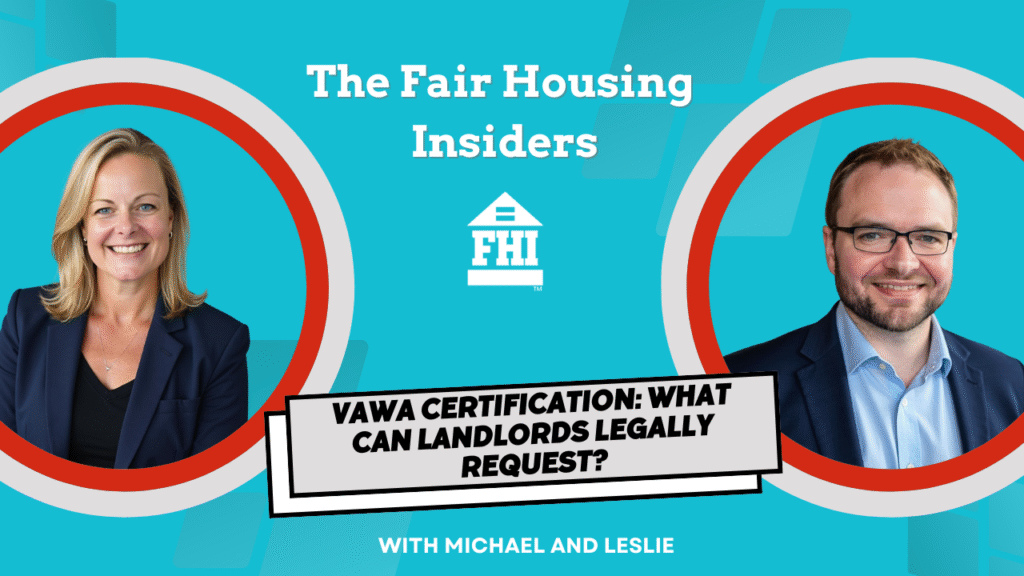Navigating the requirements of the Violence Against Women Act (VAWA) is a necessary but often complicated responsibility for housing providers. One of the most frequently misunderstood aspects is the documentation process—what you can legally request from residents and how to ensure your practices are compliant.

Table of Contents
What Type of Documentation Is Allowed?
A common question in property management is: what type of documentation can be requested when a resident invokes VAWA protections? Unless the housing provider already has knowledge of the individual’s victim status, they are permitted to request documentation—but only one piece.
Importantly, the choice of documentation lies solely with the resident. That documentation could take the form of a self-certification (HUD Form 5382), a police report, a court order, or a statement from a professional such as a therapist or victim advocate. While a resident may choose to submit multiple forms of documentation, housing providers cannot require more than one, nor can they dictate which type.
Timing and Written Requests Matter
The sensitivity of VAWA-related interactions means that timing and communication matter. If a housing provider intends to request documentation, they must do so in writing immediately after the resident’s request for protection is made. That written notice must include a 14-business-day window for the resident to respond. If the documentation is not provided in that timeframe, and no extension has been requested, the provider may proceed with the original action—whether that’s a lease enforcement or application decision.
Training Staff to Handle VAWA Requests
Proper staff training is essential to ensure that VAWA requests are handled lawfully and compassionately. Every employee—from leasing to maintenance—should know how to recognize a VAWA-related request and what to do with it. If a team member doesn’t understand how to escalate the request appropriately, that delay or inaction could lead to a violation of the resident’s rights.
Common Mistakes That Lead to Legal Trouble
Unfortunately, there are recurring legal missteps made by housing providers. One of the most significant errors is requesting specific types of documentation, such as asking directly for a police report or restraining order. This violates the resident’s right to choose their preferred form of verification.
Another common mistake is failing to provide the documentation request in writing, which is a requirement under the law. Perhaps most critically, some providers doubt the credibility of a resident’s claim—even after proper documentation is submitted—and decide to deny VAWA protections. That decision can place a provider at serious legal risk, especially if their doubts are not supported by any evidence.
Protecting Residents and Your Organization
Property managers often feel overwhelmed or even fearful about handling VAWA requests. But understanding the law, following written protocols, and training staff properly can mitigate much of that uncertainty. When approached with care and legal clarity, providers can protect their residents—and themselves—while fulfilling their compliance obligations.
Let us help you strengthen your VAWA compliance and training programs. Our course breaks down complex legal requirements into practical guidance your entire team can follow with confidence.
You may also like:
- Preventing Staff Harassment in Property Management
- Fair Housing Liability: When Does Resident-on-Resident Harassment Trigger Management’s Duty to Act?
- Retaliation vs. Rule Enforcement: Navigating the Fair Housing Fine Line
- Top 3 Fair Housing Risks for Property Managers in 2026
- A Year of Upheaval: How 2025 Impacted Fair Housing Operations
